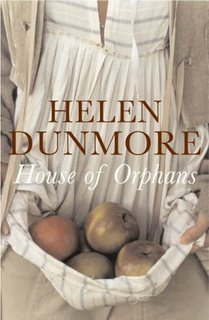 The Independent
The Independent features Helen Dunmore's new book,
House of Orphans, which will be released this week. Though we love Helen Dunmore's work, we wouldn't be talking about this exciting event if it wasn't for this:
"I wanted to get that feeling of how we don't yet know about how cities work," says Dunmore,"because everyone's been in the countryside until really recently. This sense of what these big industrial cities are like when they're enormous and nobody knows how they work. Every country in Europe seemed to ascribe moral evil to the city and moral virtue to the countryside. I wanted to write about that and against that the countryside, where people have an enormous amount of emotion about locality, which is very primitive and complex."
In tackling industrialisation, Dunmore is, of course, following in the footsteps of the great Victorians, writers like Dickens, Mrs Gaskell and Charlotte Brontë. Like them, too, she is fascinated by what people manage to do in life against the odds. Eeva, says Dunmore, is like Jane Eyre in refusing "certain destinies". She is also part of a much wider climate of rebellion against the established order. "The thing about orphans is not just that they don't have parents, but that they don't have patterns," Dunmore explains. "Your parents show you the patterns, and I suppose societies are like that, too. What happened in the Soviet Union is when you decide to be orphaned, you turn away and you say I don't care... That's like saying no, we're not going to live in the house of our fathers." We'll take this opportunity to mention that in one of Helen Dunmore's collections of short stories -
Ice Cream - there's a short story called "Mason's Mini-break" which is very, very Brontë-related. If you're not acquainted with Helen Dunmore and need a good reason to grab one of her books at your local bookshop/library, let this be it. We can affirm you won't regret it!
ETA:
The Guardian publishes another article on Helen Dunmore:
Dickens and Charlotte Brontë lent insight into the "idea of the fallen woman, whose children you take away and put into a workhouse, so you can coerce them - though Eeva has been given enough in early childhood to give her inner strength. They used the language of disease, as though women would infect society."Wouldn't that be Dickens and Gaskell though? Jane eyre was put into a very bad school, not a workhouse, and she wasn't the daughter of a fallen woman.
Categories: Books, In_the_News, Jane_Eyre









0 comments:
Post a Comment